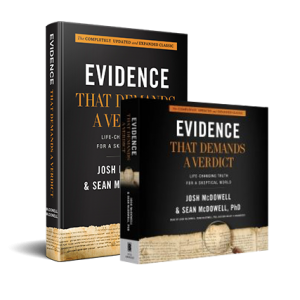
Doubt can be the catalyst for real faith! Don’t try to hide yours.
Do “real” Christians have the freedom to doubt the existence of God, Jesus, and the truths of the Bible? Or should we feel guilty when our faith wobbles like Jell-O? Notes Paul Tillich, “Doubt isn’t the opposite of faith; it is an element of faith.”
God knows that we will have questions and doubts because we can’t see the big picture like He does. That’s why He repeatedly tells us, in His Word, to trust and chill (“Do NOT fear!”). But God also tells us to pursue the development of our faith. Doubt is a great motivator to fuel this pursuit.
God is not offended by our doubt. God designed us to seek truth, that we might grow in our knowledge of Him. So why do we feel that it’s bad, if not wrong, to question God, the Bible, and even our particular church’s stance on an issue?
We can all come up with reasons for not wanting to ask the big questions, says Ann Sullivan, the author of Permission to Doubt: One Woman’s Journey into a Thinking Faith. We don’t want to appear vulnerable or confused. We were taught that our inquiries are a sign of disrespect or unbelief. We are afraid our faith will buckle under the bright lights of interrogation. And some of us, she adds, sidestep investigation altogether, just to make sure God doesn’t get mad at us. “But if God is really God,” she queries, “how could He ever be threatened by us? If our faith is rooted in truth and our ability to reason is a gift from God, shouldn’t He be able to handle any question we come up with?”
Her question gets at the heart of the matter, doesn’t it? Some of us hide or ignore our doubts because we’re not sure God can handle our daring to ask questions. Trusting God is rough stuff for people taught that God is easily angered and delights in thumping them on the head.
I like the clarity that Pete Enns, a noted college professor, provides when he suggests, “Doubting God is painful and frightening because we think we are leaving God behind, but we are only leaving behind the idea of God we like to surround ourselves with—the small God, the God we control, the God who agrees with us. Doubt forces us to look at who we think God is.”
If faith and doubt are expressed as a mathematical equation, adds Christian writer Ed Cyzewski, it would look like this: A little faith > a lot of doubt. Doubt, he’s saying, doesn’t cancel out our faith. Because the opposite of faith isn’t doubt, but unbelief.
Skeptical Versus Skepticism
The definition of skeptical is “having an attitude of doubt.” As a philosophy, Skepticism goes so far as to question whether it’s even possible for humans to attain knowledge. “Can we ever really know anything?” ask these thinkers. “Does this chair really exist, or do I merely think it exists?
Pyrrhonian Skepticism, developed in ancient Greece, even declines to make definitive judgements on the truth or untruth of any belief. So don’t ask these thinkers if the chair exists, because they will only argue both sides. Some even propose that our individual human “reality”—the lives that you and I think we’re living on a daily basis—is nothing more than mental fantasy generated by an evil genie or super-computers. (Cue the Matrix movie trailer, please.)
John Ortberg, Jr., in his fabulous ChristianityToday.com article titled Slaying Spiritual Skepticism, asserts that the more destructive form of skepticism is a disease not so much of the intellect, but of the will. “It is not the doubting of Thomas that leads to a search for the truth,” he writes, “it is the doubting of Pilate (“What is truth?”), which is less a question about truth than an affirmation that truth cannot be found, an excuse to wash my hands of the whole thing and simply pursue my agenda.”
Here’s a question: if even philosophers think they can’t know anything with complete certainty—and be perfectly fine with holding that view—why do we Christians begin to sweat buckets when a skeptic demands that we prove, 100 percent, that God exists? Ahem! If they’re going to make that assertion, they first should prove by the same measure that He doesn’t.
Writes Lenny Esposito in his powerful article on ComeReason.org, “It seems that many people who object to Christianity want the Christians to do all the work and provide an answer for every nuance of their belief system, but don’t feel they are obligated to do the same. What bothers me is many Christians accept that premise and do a lot of work when the person objecting really wasn’t interested in the truth to begin with. Now, some people are sincerely seeking answers, and we should be able to give them good reasons for believing why we believe. But if the skeptic feels it important for you to have reasons for your faith, then they should be equally accountable.”
Dudes! Stop thinking you have to be a Christian encyclopedia, or that Christianity will crumble if you can’t answer every question! You’re not God; you won’t have all the answers for this crazy life.
Even Mother Teresa Felt Doubt!
Surely doubt plagues only “weak” Christians, right? Nope. Doubt plagues even the major players.
Many noted Christian teachers and leaders have publicly acknowledged their doubt—among them Pope Francis, C.S. Lewis, and Charles Spurgeon. Closer to home, Sean McDowell has shared that his nature leads him to be a “consistent doubter.” He doubts, for example, his purchases, his daily choices, and yes, his spiritual beliefs. McDowell has said that his doubts can feel “crushing.” (Can you relate?) But he doesn’t view doubt to be a shameful weakness, as it pushes him to study, think, question—and share his findings to strengthen the faith of others.
The amazing Mother Teresa also had crushing doubts, as the world learned when her private letters were published. The secular media promptly labeled her a “fake,” “liar,” and “pretender.” Yet in this story by Enns, we gain insight into her deep faith:
“In 1975, the Jesuit philosopher, John Kavanaugh, went to work for three months at the ‘house of the dying’ in Calcutta with Mother Teresa. He was searching for an answer to some spiritual struggles. On his very first morning there, he met Mother Teresa. She asked him, ‘And what can I do for you?’ Kavanaugh asked her to pray for him. ‘What do you want me to pray for?’ she asked. He answered with the request that was the very reason he traveled thousands of miles to India: ‘Pray that I have clarity.’ Mother Teresa said firmly, ‘No. I will not do that.’ When he asked her why, she said, ‘Clarity is the last thing you are clinging to and must let go of.’ When Kavanaugh said, ‘You always seem to have clarity,’ Mother Teresa laughed and said, ‘I have never had clarity. What I have always had is trust. So I will pray that you trust God.’”
The world might label us “fake” Christians when doubt pulls at us to question our faith. But in actuality, admitting our doubts places us squarely in the Authentic Zone. And that’s right where God can begin speaking clearly to us. (All He might say there, by the way, is, “Teresa, you don’t need to know that right now. Just trust.”)
Face Your Doubt, See Where It Leads
So what’s your deal with doubt? Do you pretend, like many church leaders, that your faith never falters?
I’ll admit that I sometimes doubt that God is working for my good. There are things I pray for, you see, that He is not providing. In those moments, I have to remember my limited view. Like Mother Teresa, I also often question why a great and powerful God would allow so much evil and pain in this world. I have only two choices: take the easy route—simply decide that God is neither great nor good (or possibly asleep at the wheel)—or decide to seek answers to understand His nature and what He says about our free will and the consequences of sin.
Still, doubt can be paralyzing. But it’s important that we press on, because in pressing we find answers and strength.
I love the song “Even If” by the Christian band, MercyMe. It captures the direction I think every Christian should be headed: to faith, despite the doubt. Just a few of the song’s lyrics: “They say it only takes a little faith to move a mountain. Well, good thing, a little faith is all I have right now. God when you choose to leave mountains unmovable, give me the strength to be able to sing it is well with my soul.” Another MercyMe song equally impactful: You Are I Am.
So how do we constructively handle doubt? First, by identifying reliable sources. And lastly, by recognizing when to “Let go and let God.”
But while we’re on the hunt for truth, we must develop our ability to think critically, with rational and logical thought. We need to recognize where we are seeing others’ biases and assumptions instead of the truth. And then we need to admit our own biases. It’s okay to challenge everything, as buying into the crippling lie that Christians must live with “blind faith” doesn’t actually produce faith of substance.
Pastor Timothy Keller uses a helpful analogy to show why it’s critical that we view doubt in the right light:
“A faith without some doubts,” he says, “is like a human body without any antibodies in it. People who blithely go through life too busy or indifferent to ask hard questions about why they believe as they do will find themselves defenseless against either the experience of tragedy or the probing questions of a smart skeptic. A person’s faith can collapse almost overnight if she has failed over the years to listen to her own doubts, which should only be discarded after long reflection. Believers should acknowledge and wrestle with doubts—not only their own but their friends’ and neighbors’.”
Go ahead, admit your doubt. Just don’t stop there. Take action. Tell God your doubts and ask His help in finding truthful answers. He’s gonna love it. Just like He loves you.

This blog post highlights Josh and Sean McDowell’s recently revised apologetics classic, Evidence That Demands a Verdict. We are certain this fully updated and expanded resource will be an effective evangelism tool for you, and strengthen your faith by answering the toughest questions tossed to you by skeptics. Know what you know, because it’s true. But share this truth with LOVE!
If you’d like to start from the first blog post in this series, click here: Apologetics: Apologizing for Believing in God?.



